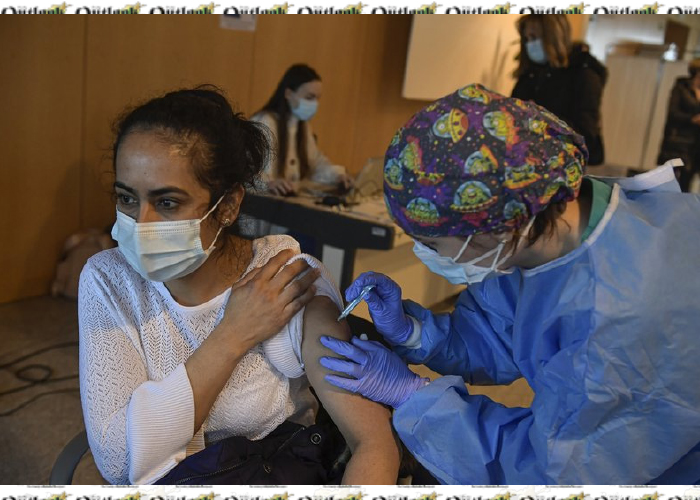BRUSSELS- European Union leaders no longer meet around a common oval summit table to broker their famed compromises. Instead, each of the 27 watches the other heads of state or government with suspicion via a video screen that shows a mosaic of faraway capitals.
This is what COVID-19 has wrought.
Lofty hopes that the crisis would encourage a new and tighter bloc to face a common challenge have given way to the reality of division: The pandemic has set member nation against member nation, and many capitals against the EU itself, as symbolized by the disjointed, virtual meetings the leaders now hold.
Leaders fight over everything from virus passports to push tourism to the conditions for receiving pandemic aid. Perhaps worse, some attack the very structures the EU built to deal with the pandemic. Last month, Austrian Chancellor Sebastian Kurz decried how vaccine-buying in the bloc had become a “bazaar,” alleging poorer countries struck out while the rich thrived.
“Internal political cohesion and respect for European values continue to be challenged in different corners of the Union,” the European Policy Center said in a study one year after the pandemic swept from China and engulfed Europe.
In some places, there have been demands for political accountability.
In the Czech Republic on Wednesday, Prime Minster Andrej Babis fired his health minister, the third to be sacked during the pandemic in one of Europe’s hardest-hit countries. Last week, Slovakia’s government resigned over a secret deal to buy Russia’s Sputnik V vaccine, and in Italy, Premier Giuseppe Conte was forced to resign over his handling of the economic fallout of the pandemic.
But overall, political upheaval across the EU has been muted, considering that half a million people have died in the pandemic. At the EU level, there has been no serious call for the ouster of European Commission President Ursula von der Leyen, the bloc’s chief executive, despite her acknowledgment that serious mistakes were made.
It is clear that the EU has not risen to the occasion so far — and it’s not clear if it can. The European Policy Center noted that “there is no immediate end in sight to the health crisis, not to mention the inevitable structural economic challenges.”
The EU and its countries, of course, fell victim to some events beyond their control, as other nations around the globe did. Good arguments can be made that part of the the bloc’s problems are due to delayed deliveries from Anglo-Swedish pharmaceutical company AstraZeneca. But some of the crisis was plainly self-inflicted.
The typical complaint is that there is no united EU health structure to tackle the pandemic and that largely health is still a national domain. But for years, the bloc has had a common drug regulator, the European Medicines Agency. And since last summer, the EU decided to pool vaccine purchases and spread them equitably among the 27 nations, big and small, richer and poorer.
Now there are expectations the EU can turn it around. It is hoping for 360 million shots this quarter — that would keep the promise alive to vaccinate 70% of adults by the end of summer in the bloc of 450 million inhabitants.
In France, President Emmanuel Macron gave a glimmer of hope to millions when he said that a return to a semblance of normal life could perhaps come by mid-May when people could “reclaim our art de vivre embodied by our restaurants and our cafes that we love so much.”
By then, EU leaders might even mingle in person again at summits that go through the night. (AP)
Home » World » EU and COVID-19: When A Vaccine Only Adds to The Trouble
EU and COVID-19: When A Vaccine Only Adds to The Trouble

